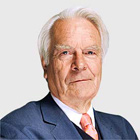The coalition’s 2012 health reform act was disastrous. It can be overturned – but time is running out

The Health and Social Care Act 2012 – engineered by the former health secretary Andrew Lansley – was a massive blunder, and even senior Conservative ministers now admit the scale of its disastrous repercussions.
The main thrust of the Lansley project was to take the NHS down the American healthcare route, creating an external market and mandating the compulsory marketisation and commercialisation of services.
Michael Gove, now government chief whip, has claimed that no privatisation of the NHS has taken place but this is plainly wrong. A deplorable example was the sale in July 2013 of Plasma Resources UK which turns plasma into blood products, a particularly sensitive area in healthcare, to the US private equity company Bain and Company. Another example: when advertising for a new chair for NHS Blood and Transplant it was made clear that candidates should have privatisation experience.
Having now established a clear-cut precedent for further privatisation, there is every expectation among private contractors that when contract renewals come up they will be able to tender proposals for a transfer to private ownership. Some of these contracts are massive, such as the 10-year contract in Staffordshire for vital cancer services and end-of-life care worth £1.2bn.
These acts of privatisation will not, unfortunately, be the last if the Conservatives continue in government after the next general election. The companies competing for contracts may even hope to invoke the controversial investor state dispute settlement procedures being negotiated as part of the next big EU-US trade agreement, theTransatlantic Trade and Investment Partnership (TTIP), which was championed by the present NHS chief executive when in America, which could enable them to challenge the law in order to hold on to their contracts.
For 68 years, the NHS has provided the level of healthcare that our parliament has decided we can afford. The truth is that healthcare, whether public or private, in a very real sense is infinite: unlimited sums of private money can be – and in many countries are – poured into healthcare by those who can afford it. Money for the NHS is determined by public choice, and relative to what we choose to spend on education, housing, welfare, defence, all of which are legitimate demands on the public purse.
George Osborne is to announce another £2bn for the NHS on Wednesday, a welcome move, which should be used to create a new NHS investment fund with charitable status to centrally handle PFI contracts.
But healthcare, if publicly provided, inevitably has to be constrained. Traditionally, that rationing process within the NHS is flexible, professional and democratically accountable to parliament. British voters could have chosen a different system – they exist in many parts of the world – but no major political party has ever felt brave or foolish enough to put such a choice to them. Nor was it a choice put to the electorate in 2010 by either of the coalition parties.
Yet we know of David Cameron’s close involvement with Lansley before the election. Nicholas Timmins – in Never Again? The Story of the Health and Social Care Act 2012, a study for the Kings Fund – writes: “It is far from the case that the senior Conservatives – Cameron, Osborne and Letwin, for example – were ignorant about what Lansley was up to … He and Oliver Letwin helped write the green papers.” Guilt may be the explanation for Cameron’s current attempt to give the former health secretary a job running humanitarian affairs in the UN.
The far more expensive model based on the US is, after just two years, already having a deep and damaging impact on behaviour in the NHS and depressing standards of care. It is challenging the very nature of the vocational aspect of medicine for nurses, doctors and everyone who works in the NHS. It may be happening slowly, but the dynamics of this market model over the years will carry their own momentum.
Despite much-publicised scandals, such as that which enveloped the Mid Staffordshirehospital, the NHS remains extraordinarily popular among the public, and the only explanation I have is that people know that all demands for ever more expensive healthcare cannot be met. They understand that there have to be financial disciplines; that we cannot abolish all charging or market elements or private contractors in such a large concern.
People do believe, however, that an organisation that carries the brand name NHS has to practise under a fair trade description, and that means that the preferred provider should be the NHS. They like the NHS because they sense that its care choices are broadly fair and they prize its comprehensive cover. Most families have their own reasons to bless the NHS. They can complain, they can get angry with it and they are demanding, rightly, to be better able to influence its rationing process. But what they are rightly fearful of is that, once the service is driven by market principles, the rationing will cease to be fair and their care will become determined by profit.
Such a grave mistake as Lansley’s reform must be corrected. A reinstated NHS would be far better placed to provide a comprehensive, cost-effective healthcare service for England, which is similar, although not the same, in all parts of the UK. Repealing the 2012 act is not a realistic political option but its worst aspects can and must be excised, and the best opportunity to secure a commitment to doing that is before the 2015 election.
As individuals we can exercise our democratic rights over the NHS in ways that would have been impossible before the internet. Using www.nhsbill2015.org we are already opening up old-style political campaigning to new means of persuasion. This is not about money. No, what is required is a vast commitment, in terms of time taken to convey the complexities of the NHS, time taken to lobby MPs and parliamentary candidates, and the persistence not to let candidates escape behind generalised party political messages and manifestos devised by talking to focus groups. There is a new democratic way of exercising the power of the people and we saw its beginning during the Scottish referendum.
We must not forget that in September 2014 the Scottish independence referendum brought the UK perilously close to splitting apart. Those elements that we share, that help create a sense of common purpose, should become ever more precious as we try to unify our nation.
The end of the NHS as we have known and understood it in England will take place before 2020 if the 2012 legislation is not changed. The exact moment of its passing may not even be clear, because it will go with a whimper not a bang, to borrow from TS Eliot. The NHS is not a “religion”, as has often been claimed, nor is it the preserve of one political party, nor one country within our United Kingdom. It belongs to all of us and we let something of ourselves go if we don’t fight to save it.



 154 Comments
154 Comments